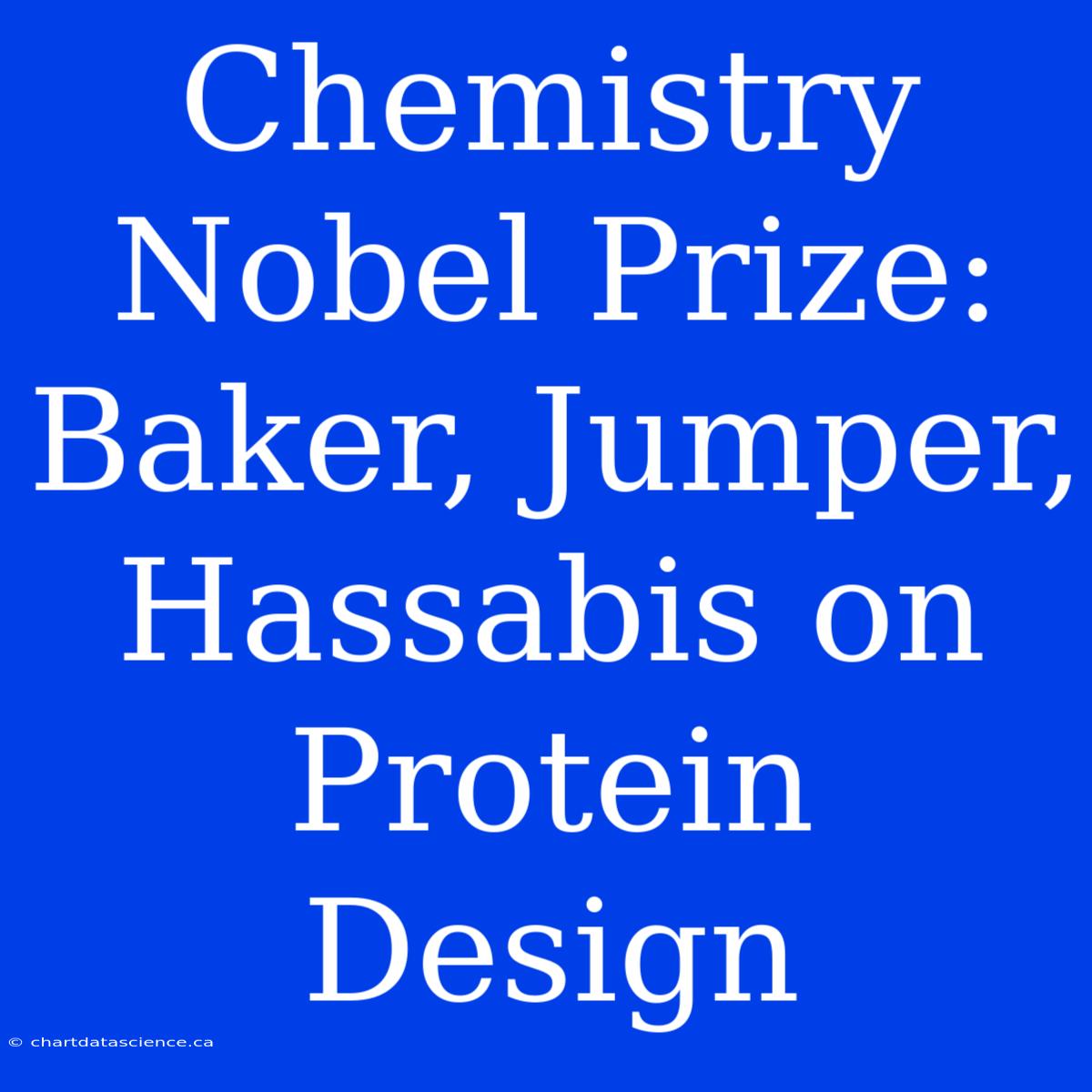Chemistry Nobel Prize: Baker, Jumper, Hassabis on Protein Design - Revolutionizing Biology with AI
The 2023 Nobel Prize in Chemistry was awarded to three scientists: David Baker, Demis Hassabis, and John Jumper, for their groundbreaking work in protein design. This recognition spotlights the incredible advancements in computational biology and the power of artificial intelligence (AI) in revolutionizing our understanding of life's building blocks.
Cracking the Code of Life: Protein Design
Proteins are the workhorses of living organisms, performing a vast array of functions from transporting oxygen to building tissues. Their intricate structures, shaped by chains of amino acids, determine their specific roles. For decades, scientists have been fascinated by the ability to design and engineer proteins with specific functions.
David Baker, a pioneer in the field, has spent years developing computational methods for protein design. His lab at the University of Washington has created tools that can predict protein structure and design new proteins with desired properties. Baker's work paved the way for a deeper understanding of protein folding and opened up exciting possibilities for developing new drugs and biomaterials.
AI Steps Up: DeepMind's AlphaFold and the Protein Folding Problem
Enter Demis Hassabis and John Jumper, leading researchers at DeepMind, a company known for pushing the boundaries of AI. In 2020, their AI system, AlphaFold, made headlines by achieving unprecedented accuracy in predicting protein structures. This breakthrough solved the decades-old "protein folding problem," a challenge that had long puzzled scientists.
AlphaFold's success relied on a revolutionary approach – deep learning. By feeding vast amounts of protein data into its neural network, AlphaFold learned to recognize patterns and predict how proteins fold. This achievement has opened doors to a new era of protein engineering.
The Impact of Protein Design: A New Era in Medicine and Beyond
The ability to design and engineer proteins with specific functions holds immense potential for tackling global challenges:
- Drug discovery: Designing proteins that can target specific disease-causing pathways could lead to the development of more effective and targeted therapies.
- Biomaterial engineering: New proteins could be engineered to create biocompatible materials for use in medicine, agriculture, and other fields.
- Sustainability: Protein-based solutions could be developed for carbon capture, bioremediation, and other environmental applications.
The Nobel Prize in Chemistry recognizes the profound impact of Baker, Hassabis, and Jumper's work. Their discoveries have fundamentally shifted our understanding of protein design and paved the way for a future where AI plays an even more crucial role in shaping our world.
The Future of Protein Design: Collaboration and Ethics
As protein design continues to advance, it's crucial to consider the ethical implications of this powerful technology. Open collaboration and responsible use of AI are essential for harnessing the full potential of protein design for the benefit of humanity.
The 2023 Nobel Prize in Chemistry reminds us that innovation often arises from the intersection of different disciplines. The future of protein design is bright, promising exciting new discoveries and applications that could transform our world.

